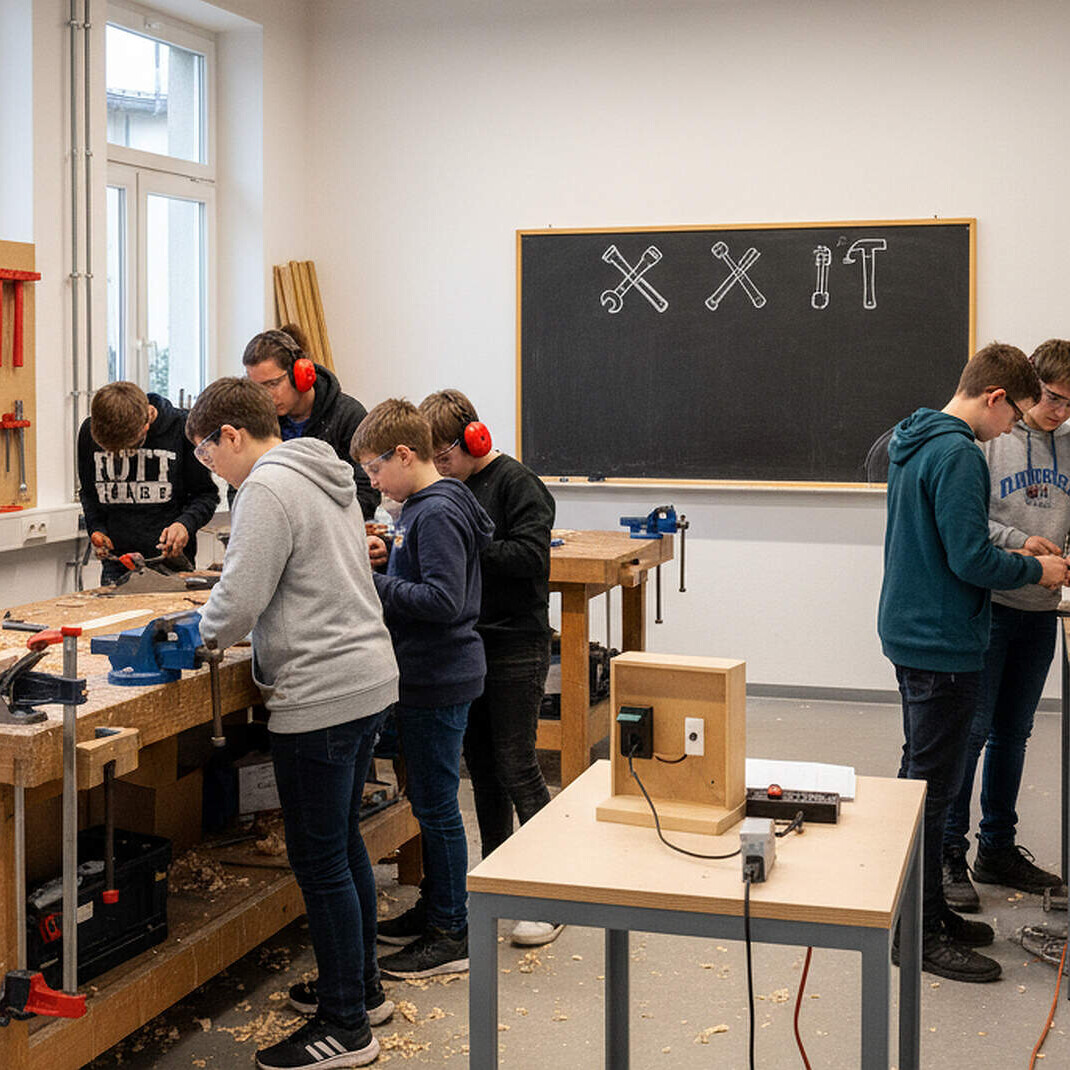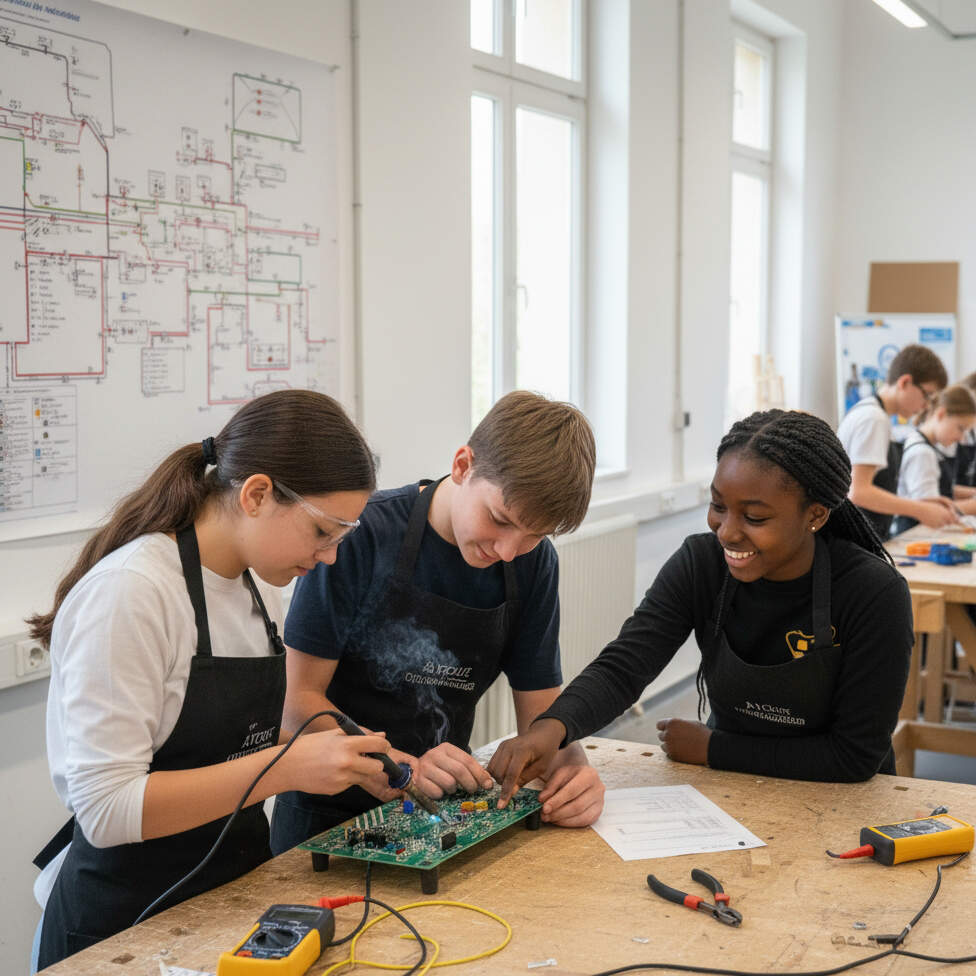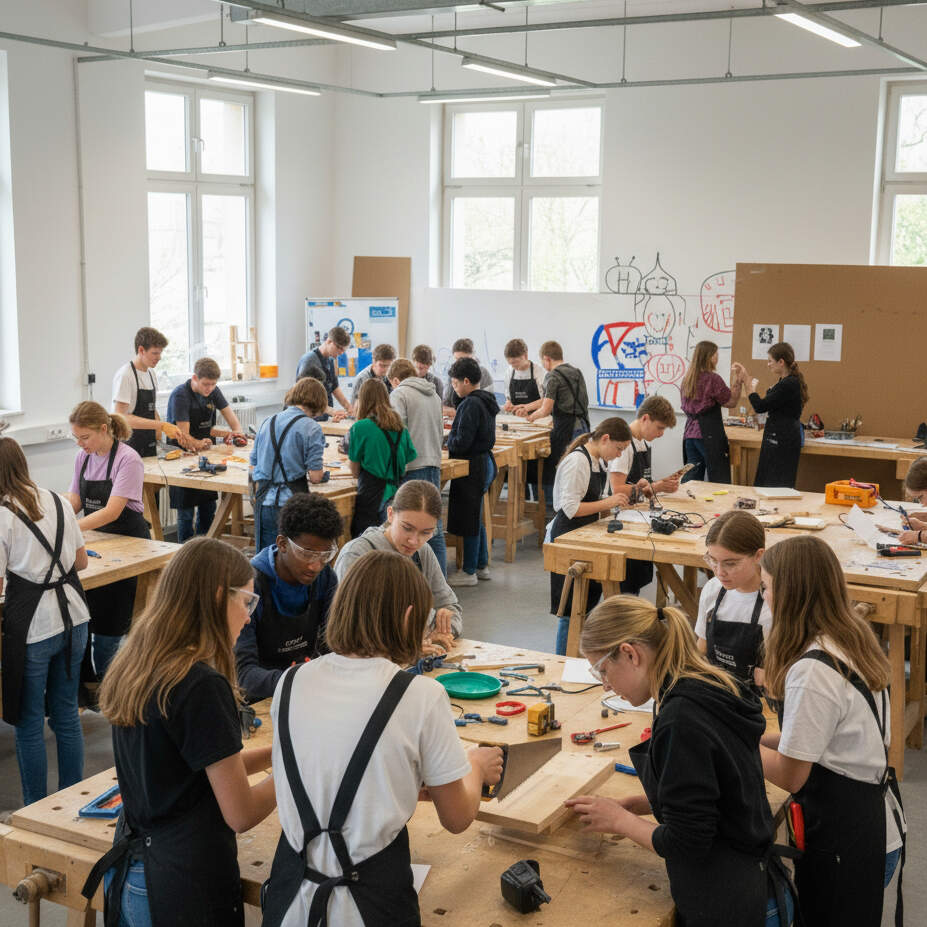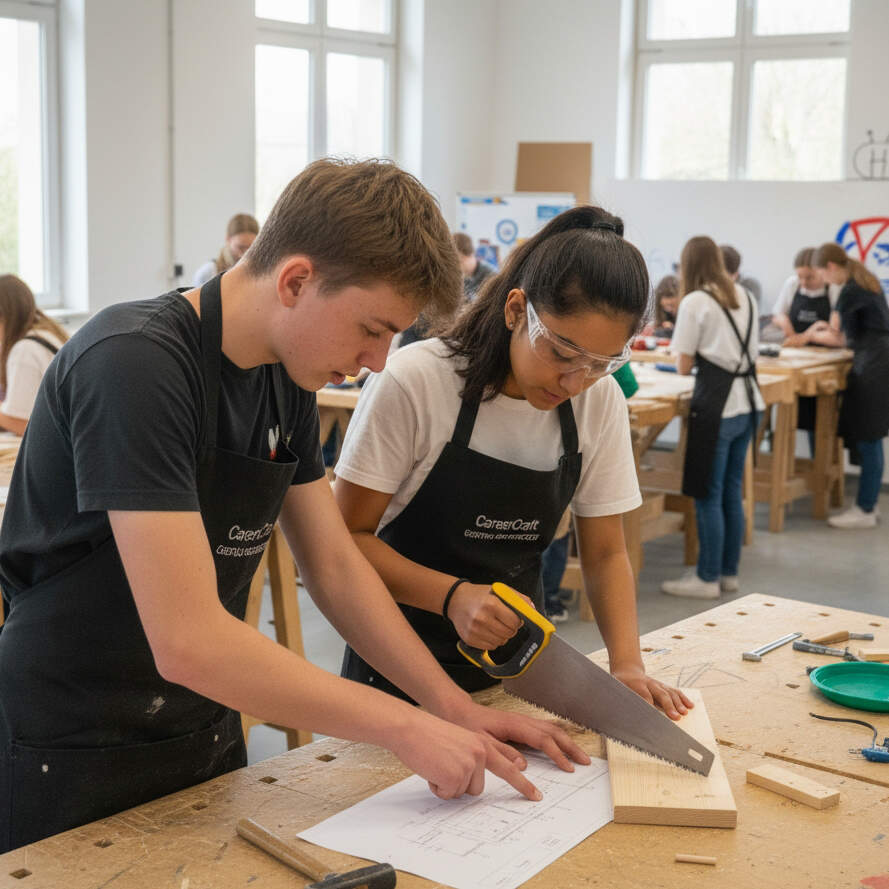CareerCraft: Shape your future
The practical workshop “CareerCraft: Shape your professional future” offers pupils from year eight onwards a hands-on opportunity to immerse themselves in the world of skilled trades. Realistic scenarios and interactive role-playing games give them an insight into the diverse possibilities of skilled trades. The aim is to awaken and promote talent and interest in these essential professions and to provide pupils with the tools for their professional future.
“CareerCraft: Shape your professional future” offers an interactive and practical introduction to various skilled trades. It is divided into two core modules (C) + three supplementary modules:
Practical workshop (C): Pupils experience realistic scenarios in various trades, such as construction and electrical engineering. The tasks range from problem-solving and project planning to discussions with customers, whereby a link is always made to the young people’s everyday lives.
Interaction (C): Through role-playing, students slip into the roles of skilled workers and managers, gain insights into different professional facets and work in groups on craft projects, which promotes teamwork and project management.
Input & exchange: Experts from local craft businesses are involved as speakers and mentors. Company visits allow direct insights into everyday working life and provide practical experience. Output: The students create information materials and use digital platforms to document their project work and simulate work processes, thereby promoting digital skills.
Feedback: Regular feedback rounds and the development of success criteria make it possible to measure and reflect on learning success and interest in the professional fields presented. Overall, the workshop aims to awaken young people’s interest in skilled trades and excite them about career opportunities in SMEs.
Learning outcomes
Additional learning outcomes
- Practical skills: Insight into basic (manual) techniques and understanding of technical processes in various professions.
- Self-confidence and self-efficacy: Confidence in your abilities and the conviction that you can actively shape your career path.
- Ability to reflect: Ability to evaluate one’s interests and skills concerning professional opportunities.
Duration
Age group
Kind of activity
Contact
Country: Germany
Contact person: Marco Schroeder
E-mail: mschroeder@mscplus.eu
Implementation
Step-by-step
Kick-off: Start the workshop with an introductory event.
Carry out modules: Carry out the various CareerCraft modules interactively.
Involve experts: Integrate guest lectures and mentoring sessions (e.g. with training companies)
Project work: Have the students work in groups on practical projects.
Company visits: Organise excursions to local SMEs.
Involved professions
Teachers, careers counsellors, pedagogues (careers guidance, all-day school, etc.), trainers, trainees, representatives of the Chambers of Commerce/Craft.
Preparation & follow-up
Preparation:
Set goals: Determine the specific learning objectives of CareerCraft.
Develop content: Create the CareerCraft modules with practical scenarios.
SME partnerships: Co-operate with local SMEs for expert input and company visits.
Materials and resources: Obtain all necessary teaching materials and digital tools.
Follow-up:
Collect feedback: Conduct surveys and feedback rounds with the students.
Evaluation: Evaluate the success of CareerCraft based on the defined goals.
Presentation of results: Have the students present their projects and findings.
Reflection session: Organise a final discussion to reflect on what has been learned.
Plan improvements: Analyse the feedback for future CareerCraft implementations.
Additional resources
Documents
Evaluation
Before and after surveys: Conduct targeted surveys of students before and after CareerCraft to record changes in understanding and attitudes.
Feedback forms: Use structured feedback forms with specific questions to evaluate the workshop content and its practical relevance.
Project evaluation: Review the student projects about realistic implementation and application of what has been learnt.
Company feedback: Obtaining feedback from SME experts to assess the workshop results.




